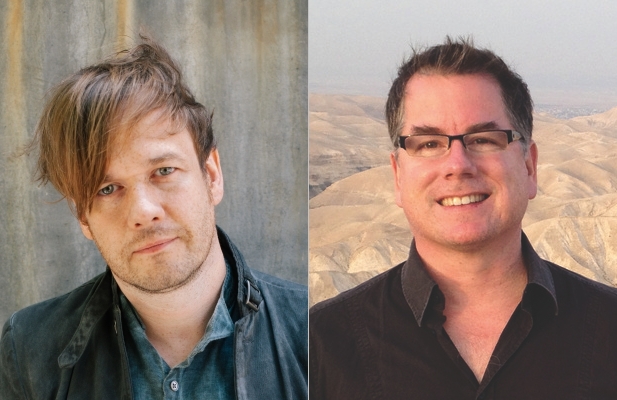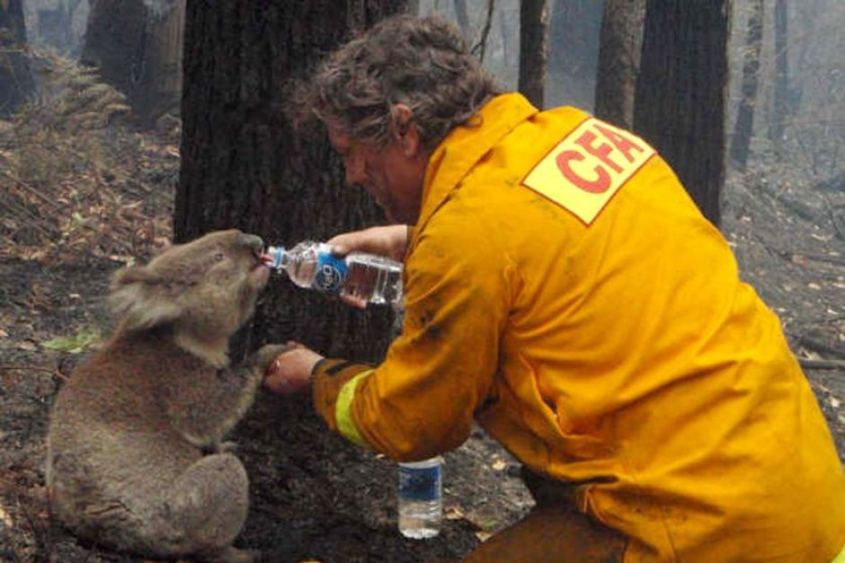- The greater the importance of something to you, the more likely you are to have doubts about it.
- The greater the doubt, the more you desire to have certainty.
So what should we do when we doubt? Should we suppress it or express it? Can we ever relieve our doubts or should we just settle for uncertainty?
I recently got to go to a talk by John Dickson, and in the following week two events by Peter Rollins. Both are highly educated, intelligent, thought-provoking and effective communicators. I particularly appreciated their humility, approachableness and willingness engage with my questions and objections. As I’ve been mulling over what they said, I’ve realised there are both similarities and contrasts between the two that are worth sharing.

While they both had helpful insights on a range of things, topics they both focused on were doubt and desire. They both spoke about acknowledging that we are all deeply flawed people in a broken world. We all have doubts, at least at times, about big questions―be that the existence or character of God, the interpretation of the Bible, about who we are, or why we suffer. This was refreshing because sometimes there is pressure to “have it all worked out”, or that any doubt implies we don’t have enough faith1.
But once we’ve acknowledged our doubts, what do we do next?? At both events this question came up, and both speakers acknowledged that it depends on the type of doubt. If someone is plagued by psychological doubts and despairing to the point of feeling anxious or depressed, we should be sensitive, take their concerns seriously and support them as best we can2. However, if the doubts are straightforward intellectual doubts, Rollins and Dickson offer two different approaches.
My impression from Rollins’ talk, and the conversations with him afterwards3, is that he is comfortable leaving many things unresolved, as doubts, as mystery4. He suggests that in our consumerist, hedonistic culture we are too quick to give neat “answers” and to seek to satisfy every desire.
… the Good News [is] that we can’t be satisfied, that life is difficult, and that we don’t know the secret.Peter Rollins
I think Rollins’ caution should be heeded. Often the more we learn about something, the more we discover how much more there is to learn―that things are often more complex than we initially think. I suspect God deliberately leaves ambiguity around some things to encourage the virtues of patience, trust, humility and perseverance.
For those with intellectual doubts, Dickson recommended reading and researching more because most quandaries have been pondered and addressed extensively by someone before. I’m naturally attracted to Dickson’s approach. My Dad is a science teacher and my Mum is teacher librarian, so questioning and reading were ingrained in me from an early age. Dickson also suggests that God, largely through the Bible, does offer answers to some of our doubts now and promises that in the future there will be a resolution to all doubts and suffering. We can have hope now. In the book that his talk summarized, Dickson writes:
But Is It All Wishful Thinking?
In The Weight of Glory C. S. Lewis describes humanity as having a sort of longing for a far-off country, which some people dismiss as nostalgia or romanticism but which he thinks comes because we were made for heaven. “Almost all our education has been directed to silencing this shy, persistent inner voice,” he says; “almost all our modern philosophies have been devised to convince us that the good of man is to be found on this earth.” But Lewis says we are never satisfied with earth as it is, with all its discord and sadness. Christians look beyond the pain, for “all the leaves of the New Testament are rustling with the rumor that it will not always be so”.John Dickson, A Doubter’s Guide to the Bible (Zondervan, 2014), 214
I do think it is easier to endure suffering and live with the questions and doubts it raises, if we believe we are promised a good outcome.
If I knew there was a resolution [to suffering], I could walk through life without precisely knowing why I’m experiencing ugliness [suffering].John Dickson, Doubting the Bible, Hobart talk 2015
I put this to Rollins but he wasn’t convinced. My impression is that he thinks we risk not fully living in the now5 if we are desiring the future.
… [set] aside questions regarding life after death to explore the possibility of a life before death.Peter Rollins
While I think the Bible does encourage peace and contentment with the current, non-ideal situation, I don’t think that it’s suggesting this at the expense of hope and the desire to see the ideal realised. For example, I can be at peace with the death of a loved one, while still looking forward to the day when we’ll be reunited in the New Creation.
The fact that humanity has longings [for God, the afterlife, and ethics] that are satisfied by the teaching of the Bible is no more an argument against the Bible than the physical thirst can be thought of as an argument against the reality of water. … perhaps this “match” between human longings and the Bible’s message arises because the one who made us for himself stands behind the Bible, as water for our thirst. … in Jesus Christ all of our longings for God, for each other, and for the redemption of creation are satisfied. … [in] the final lines of the Bible itself, we are all invited for a drink…John Dickson, A Doubter’s Guide to the Bible (Zondervan, 2014), 215-217
“Come!” Let anyone who is thirsty come. Let anyone who desires drink [receive] freely from the water of life.Revelation 22:17b (NLT)
I think this verse goes even further than Dickson realises, and suggests universal salvation. For the water of life flows out (Zechariah 14:8) the open gates (Rev 21:25) of the New Jerusalem to the not-yet-saved outside (Rev 22:15) and it is God and the quenched (John 4:14) who are calling the thirsty to drink. In a future post I’ll look at the objection that some people will refuse to drink. For now, I think it’s worth considering how parched one becomes near fire6, and how irrational it would be not to accept a free drink. Anyway, for Calvinists, like Dickson, I hope they wouldn’t have this objection as they believe all whom God calls will come7.
“Is anyone thirsty? Come and drink—even if you have no money! … My word that comes from My mouth will not return to Me empty, but it will accomplish what I please and will prosper in what I send it to do.” Isaiah 55:1,11 (NLT)

1. Which could be interpreted as meaning one’s salvation is at stake.
2. This may include encouraging them to seek professional help via a GP.
3. I’ve watched some of his YouTube videos too but unfortunately I haven’t read any of his books yet.
4. This reminds me of the Eastern approach to theology.
5. He made some excellent points about making sure we give priority to loving people over philosophising about things.
6. Also located outside the gates in Revelation imagery.
7. The “I” in TULIP is for Irresistable Grace.

When I saw that both Rollins and Dickson were speaking within a week of each other in Hobart I thought someone should market a double-pass! I am sure they were quite different talks and maybe good for us to be challenged by both.
One thing I hear from Peter Rollins is an observation that the quest for certainty and satisfaction can be oppressive. Perhaps where John Dickson encourages us to freely engage with our doubts so that we can find that certainty for which we yearn, Rollins encourages us to become freed from the need to pursue that certainty.
LikeLiked by 1 person